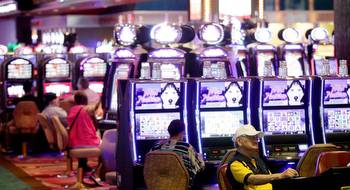Study warns online gambling social costs could be "roughly equal" to New Jersey tax revenues
The expansion of online gambling in the United States, particularly mobile sports betting, is under scrutiny following a study suggesting that social costs could be “roughly equal” to government tax revenues. This research, commissioned by the Campaign for Fairer Gambling, suggests that the promised economic windfall might not be as profitable as anticipated.
New Jersey, a forerunner in legalizing mobile sports betting in the US, has witnessed a substantial influx of taxes from this sector. However, research warns that the rise in gambling problems could overshadow these financial benefits.A report obtained by The Guardian indicates that the expansion of digital gambling in New Jersey negatively impacted the state's economy, employment, and wages, countering the gambling industry's claims about the economic benefits of legalization.
The research showed that the $2.4 billion spent on online gambling in New Jersey in 2022 had a negative impact on the state's economic activity, reducing it by approximately $180 million.
NERA Economic Consulting argues that if this amount had been spent on other recreational activities, it could have generated a significantly larger return, including an increase in wages and subsequent spending in the state's economy.
Online gaming “does notyield the types of positive knock-on economic outcomes that other discretionary industries do”, said the report.
According to NERA, the online gambling sector contributed about $110 million in wages in New Jersey in 2022, generating $22 million in new spending. In comparison, if $2.4 billion had been spent on other recreational activities, it could have resulted in about $1 billion in wages and $200 million in new spending.
In 2022, online casinos in New Jersey were reported to have generated $385 million in net taxes,a significant increase from $42 million five years earlier. However, using a study from theUK's National Institute for Economic and Social Research adapted for New Jersey, NERA estimates that the state might face up to $350 million in social costs, including healthcare, social services, homelessness, and criminal justice, due to problems related to online gambling.
The Campaign for Fairer Gambling commissioned NERA's analysis in response to a 2019 report from iDEA Growth, a gaming industry advocacy group that includes giants like DraftKings and FanDuel. This report highlighted the economic benefits of legalizing online gambling, including job creation and increased tax revenue. iDEA Growth claims that online gambling in New Jersey generated $2 billion in economic output, 6,552 jobs, $401 million in wages, and $259.3 million in taxes between 2013 and 2018.
However, NERA's economists refuted these claims, concluding that digital gambling has been detrimental to the state's economy and that the iDEA Growth report did not reflect what other sectors could generate with the same level of spending.
Fairer Gambling founder, Derek Webb
Campaign for Fairer Gambling founder Derek Webb argues that the financial balance of legalizing online betting has not been sufficiently analyzed. “America’s iGambling gold rush got out of hand quickly because the debate has been dominated by advocates for unfettered proliferation,” he said.
According to Webb, some legalizations were based on false assumptions, and only years later did the public discover that the industry's optimistic forecasts were overstated. NERA, in turn, is accused by iDEA of omitting important aspects of the legal iGaming sector, providing an inaccurate assessment and false conclusions.



































